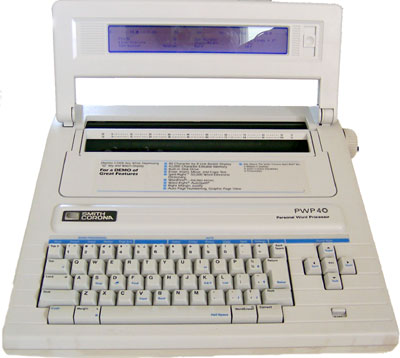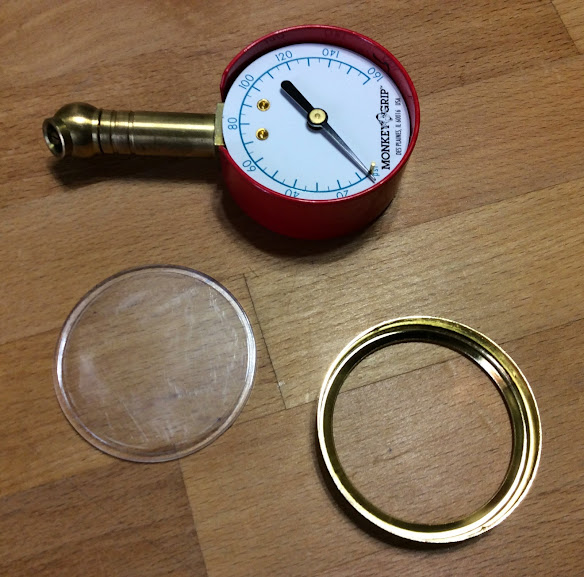My family was giggling yesterday because of some of my tales at Thanksgiving dinner. Engaging people with story is one of the highlights of my life.
Jesus told parables. News broadcasts are in story form. Good educational videos are narratives that trick you into learning. Classic literature is important to our culture.
Sometimes my anecdotes are purely for entertainment. Most are true. Some are sewn from whole cloth. A few have significant details that are changed to protect the identity of the guilty or innocent.
Freaky Fzx Fridays are stories. They are not intended to be exhaustive. They are messy and confusing. They raise more questions than they answer and that is their purpose.
The world is vastly more interesting and confusing than anything that you or I will ever understand. I want to tell that tale.
Friday, November 28, 2014
Saturday, November 22, 2014
Freaky Fzx Friday - Dark Matter
From Wikipedia:
"Dark Matter is a kind of matter hypothesized in astronomy and cosmology to account for gravitational effects that appear to be the result of invisible mass. Dark matter cannot be seen directly with telescopes; evidently it neither emits nor absorbs light or other electromagnetic radiation at any significant level. It is otherwise hypothesized to simply be matter that is not reactant to light. Instead, the existence and properties of dark matter are inferred from its gravitational effects on visible matter, radiation, and the large-scale structure of the unvierse."
"Not to be confused with antimatter, dark energy, dark fluid, or dark flow. For other uses, see Dark Matter (disambiguation)"
I have no idea either so here are some perspectives:
Wednesday, November 19, 2014
Teach Fzx Tuesday - Give Students Everything
There was a time when I required my students to memorize equations and physical constants.
I allowed them to write anything they wanted on a 4x6 card for the mid-term and final exams but I provided precious few resources. Printed books and the library drove education.
It was, indeed, a time before the interwebs. I had only seen a cellular telephone on TV and I was still using yellow chalk on a dark green blackboard. The souped up typewriter called a Word Processor that had served me well in college (thanks, Kendall) was still producing most of my worksheets for class. It was leaps better than the typewriter that my parents used when they were in college, but quite weak compared to what I have now.
The overhead projector was the peak of available technology in the classroom and had been since I was a student in elementary school. Flat screen TVs didn't exist and there was no projecting of your computer screen for all to see. Desktop computers were few and laptops fewer. I didn't even have an email address.
Time and technology have revolutionized our world. Every teacher was issued a laptop years ago. We all have iPads now (but they're still not flash or java compatible). The internet exists and is easily accessed not by plugging in to the network, but with a simple wifi password. I tweet, blog, youtube and am the proud owner of six email addresses.
All my students have cell phones. These tiny devices, now most often smart phones, are status symbols and kids classify and ridicule each other on the basis of the quality of their machines.
Students now have access to those kinematics equations with a device they take to the shower, drool over while napping in class, and keep under their pillows at night. They can read books and watch videos and communicate easily with their teachers using these same devices. It's time for change in the classroom.
So I give them this:
It has all the equations and constants and conversion factors they will need and they learn to use it well. I don't want them using precious brain space just to memorize facts that they can find in seconds using a pocket device.
It turns out that my Honors Physics students learn the important equations anyway just by using them often. Instead of focusing on tedious memorization, however, their minds are freed to contemplate and analyze. It's like the engineering certification test that some of my friends took senior year of college. They took stacks of textbooks and notebooks. Their job was to solve tough problems on a one day test using whatever resources they desired.
That engineering test had it right. In this modern world of easy access to information, let's provide the students with all the facts we can. Then they can do the tough work of interpretation and analysis.
I allowed them to write anything they wanted on a 4x6 card for the mid-term and final exams but I provided precious few resources. Printed books and the library drove education.
It was, indeed, a time before the interwebs. I had only seen a cellular telephone on TV and I was still using yellow chalk on a dark green blackboard. The souped up typewriter called a Word Processor that had served me well in college (thanks, Kendall) was still producing most of my worksheets for class. It was leaps better than the typewriter that my parents used when they were in college, but quite weak compared to what I have now.
Smith Corona Word Processor
Time and technology have revolutionized our world. Every teacher was issued a laptop years ago. We all have iPads now (but they're still not flash or java compatible). The internet exists and is easily accessed not by plugging in to the network, but with a simple wifi password. I tweet, blog, youtube and am the proud owner of six email addresses.
All my students have cell phones. These tiny devices, now most often smart phones, are status symbols and kids classify and ridicule each other on the basis of the quality of their machines.
So I give them this:
It has all the equations and constants and conversion factors they will need and they learn to use it well. I don't want them using precious brain space just to memorize facts that they can find in seconds using a pocket device.
It turns out that my Honors Physics students learn the important equations anyway just by using them often. Instead of focusing on tedious memorization, however, their minds are freed to contemplate and analyze. It's like the engineering certification test that some of my friends took senior year of college. They took stacks of textbooks and notebooks. Their job was to solve tough problems on a one day test using whatever resources they desired.
That engineering test had it right. In this modern world of easy access to information, let's provide the students with all the facts we can. Then they can do the tough work of interpretation and analysis.
Saturday, November 15, 2014
Fzx in Action - mini espresso maker
My friend returned from California with a rotary pressure gauge and this mini espresso maker.
The interior is flaking off and the big black tube is bent in several directions, but it puts out a good cup of coffee. It works a lot like this one:
And here's the machine in operation.
The interior is flaking off and the big black tube is bent in several directions, but it puts out a good cup of coffee. It works a lot like this one:
And here's the machine in operation.
Friday, November 14, 2014
Freaky Fzx Friday - The Expanding Universe
As we get older, we tend to expand horizontally. The universe has been doing the same. Looking in all directions, we see everything moving away from us.
That's one example of the Doppler effect. The bumper sticker above refers to the "blue shift" of a car approaching the bumper of another vehicle in front of it. What we are considering is the opposite - the red shift' of receding objects. It's the same concept as the sound heard from an approaching or receding ambulance.
The sound we hear is higher pitched as it approaches and lower frequency (pitch) as the ambulance moves away. The frequency of blue light is higher than that of red light so we see a shift toward the red - like a lower pitch - if something in a telescope is moving away from us.
We see this red shift everywhere we look in the universe. It turns out that the farther objects are receding faster.
Where was the universe at the beginning? Where is its center? How big is it? And just how small are we?
Just one more thing. The universe isn't actually expanding - space is.
That's one example of the Doppler effect. The bumper sticker above refers to the "blue shift" of a car approaching the bumper of another vehicle in front of it. What we are considering is the opposite - the red shift' of receding objects. It's the same concept as the sound heard from an approaching or receding ambulance.
We see this red shift everywhere we look in the universe. It turns out that the farther objects are receding faster.
Where was the universe at the beginning? Where is its center? How big is it? And just how small are we?
Just one more thing. The universe isn't actually expanding - space is.
Sunday, November 9, 2014
Fzx in Action - Rotary Pressure Gauge
A friend gave me this gauge to disassemble.
With some finger pressure from back to front, the bezel and plastic window were removed. The two screws from the back were then unscrewed to expose the surprisingly complex inner workings.
The gray goo sealing the top of the air shaft is apparently flexible enough to allow the copper ring to pivot. I tested it with the workings exposed and the air pressure pushing on the enclosed portion of the copper ring turns the ring, pulling in the direction of the pointing screwdriver, and, finally, rotating the needle.
One millimeter of motion at the left end of the ring is approximately equal to 30 psi so it's a distance multiplier. The tiny motion at the end of the air shaft is magnified by the copper ring lever (3rd class) which then pulls on another lever attached to a pivoting gear which then turns the gear on the needle shaft, resulting in rotation of the needle. The wound spring returns the needle to zero.
There is no pressure relief valve so you have to hold the gauge on the valve while reading it. Factory calibration probably consists of bending something to get a good reading - I see no easy way to do it.
Now we know. And knowing, unfortunately, is far less than half the battle.
EDIT - On closer inspection, that round copper tube may be air filled and pressure actuated like one of these party whistles. With pressure, it unwinds.
May God always grant me the courage to admit that I'm often wrong.
With some finger pressure from back to front, the bezel and plastic window were removed. The two screws from the back were then unscrewed to expose the surprisingly complex inner workings.
One millimeter of motion at the left end of the ring is approximately equal to 30 psi so it's a distance multiplier. The tiny motion at the end of the air shaft is magnified by the copper ring lever (3rd class) which then pulls on another lever attached to a pivoting gear which then turns the gear on the needle shaft, resulting in rotation of the needle. The wound spring returns the needle to zero.
There is no pressure relief valve so you have to hold the gauge on the valve while reading it. Factory calibration probably consists of bending something to get a good reading - I see no easy way to do it.
Now we know. And knowing, unfortunately, is far less than half the battle.
EDIT - On closer inspection, that round copper tube may be air filled and pressure actuated like one of these party whistles. With pressure, it unwinds.
May God always grant me the courage to admit that I'm often wrong.
Friday, November 7, 2014
Freaky Fzx Friday - Death of a Big Star
Our sun will die a boring death but other stars end their normal fusion cycle with in spectacular ways.
Very large stars can become black holes. Slightly smaller ones might become neutron stars after exploding.
Those pulsating neutron stars were originally discovered by the regular beams of energy they spin out.
Be glad that some stars supernova. Stars are where elements larger than hydrogen are made but the normal fusion process of stars can only create elements up to atomic number 26.
Everything above iron is formed in the violent process of the supernova.
So it seems that we are a second generation star system. All those elements above iron on our earth can only have come from the huge gas cloud resulting from a supernova. We are stardust.
Very large stars can become black holes. Slightly smaller ones might become neutron stars after exploding.
Those pulsating neutron stars were originally discovered by the regular beams of energy they spin out.
Be glad that some stars supernova. Stars are where elements larger than hydrogen are made but the normal fusion process of stars can only create elements up to atomic number 26.
Everything above iron is formed in the violent process of the supernova.
So it seems that we are a second generation star system. All those elements above iron on our earth can only have come from the huge gas cloud resulting from a supernova. We are stardust.
Sunday, November 2, 2014
Daylight Losing Time
It's 6:30 on the first day of our new clock time and none of the family is awake to see the sunrise. It is the second day of my birthmonth and only the elderly gathering at McDonald's will see the dawn.
We spent a week every summer in Rhode Island or on the far end of Long Island at our grandparents' houses. Dawn was always surprisingly early and darkness fell long before I was ready to go inside. It's only a 20 minute difference from Pittsburgh but it seemed like more.
And if we head out toward Chicago, it'll be more than six hours of driving before we hit the end of this time zone. Sunrise at the home of the Brickyard 500 is 25 minutes later than in Pittsburgh.
Since the sun does not respond in any way to the changing of our clocks, the number of minutes between sunrise and sunset at a particular latitude is constant for a given day. We can do anything we want with our clocks.
I never had enough time to play in the snow after school. I wanted to take long training runs in the cold but I had to start early to get them in before I got hit by a car. And any fall-winter-spring pedal time has to be put in before my daily nap or there won't be enough light for it. I like our summer clock settings.
Now my three children are suffering. Not only is it getting colder outside, but there are shorter hours of daylight. Our children will see one fewer minute of after-school daylight every day for the next months and good parents want to have their kids in before dark.
We have electricity in our homes and good headlights on our cars. We know that the energy difference is minimal. Perhaps it is just a tradition passed down to us from our forefathers. Perhaps there is some good explanation for it that I just can't wrap my mind around. Whatever the reason, I'm sick of Daylight Losing Time. Save the daylight for after school hours so we can get our kids out to play.
We spent a week every summer in Rhode Island or on the far end of Long Island at our grandparents' houses. Dawn was always surprisingly early and darkness fell long before I was ready to go inside. It's only a 20 minute difference from Pittsburgh but it seemed like more.
And if we head out toward Chicago, it'll be more than six hours of driving before we hit the end of this time zone. Sunrise at the home of the Brickyard 500 is 25 minutes later than in Pittsburgh.
Since the sun does not respond in any way to the changing of our clocks, the number of minutes between sunrise and sunset at a particular latitude is constant for a given day. We can do anything we want with our clocks.
I never had enough time to play in the snow after school. I wanted to take long training runs in the cold but I had to start early to get them in before I got hit by a car. And any fall-winter-spring pedal time has to be put in before my daily nap or there won't be enough light for it. I like our summer clock settings.
Now my three children are suffering. Not only is it getting colder outside, but there are shorter hours of daylight. Our children will see one fewer minute of after-school daylight every day for the next months and good parents want to have their kids in before dark.
We have electricity in our homes and good headlights on our cars. We know that the energy difference is minimal. Perhaps it is just a tradition passed down to us from our forefathers. Perhaps there is some good explanation for it that I just can't wrap my mind around. Whatever the reason, I'm sick of Daylight Losing Time. Save the daylight for after school hours so we can get our kids out to play.
Subscribe to:
Posts (Atom)



















